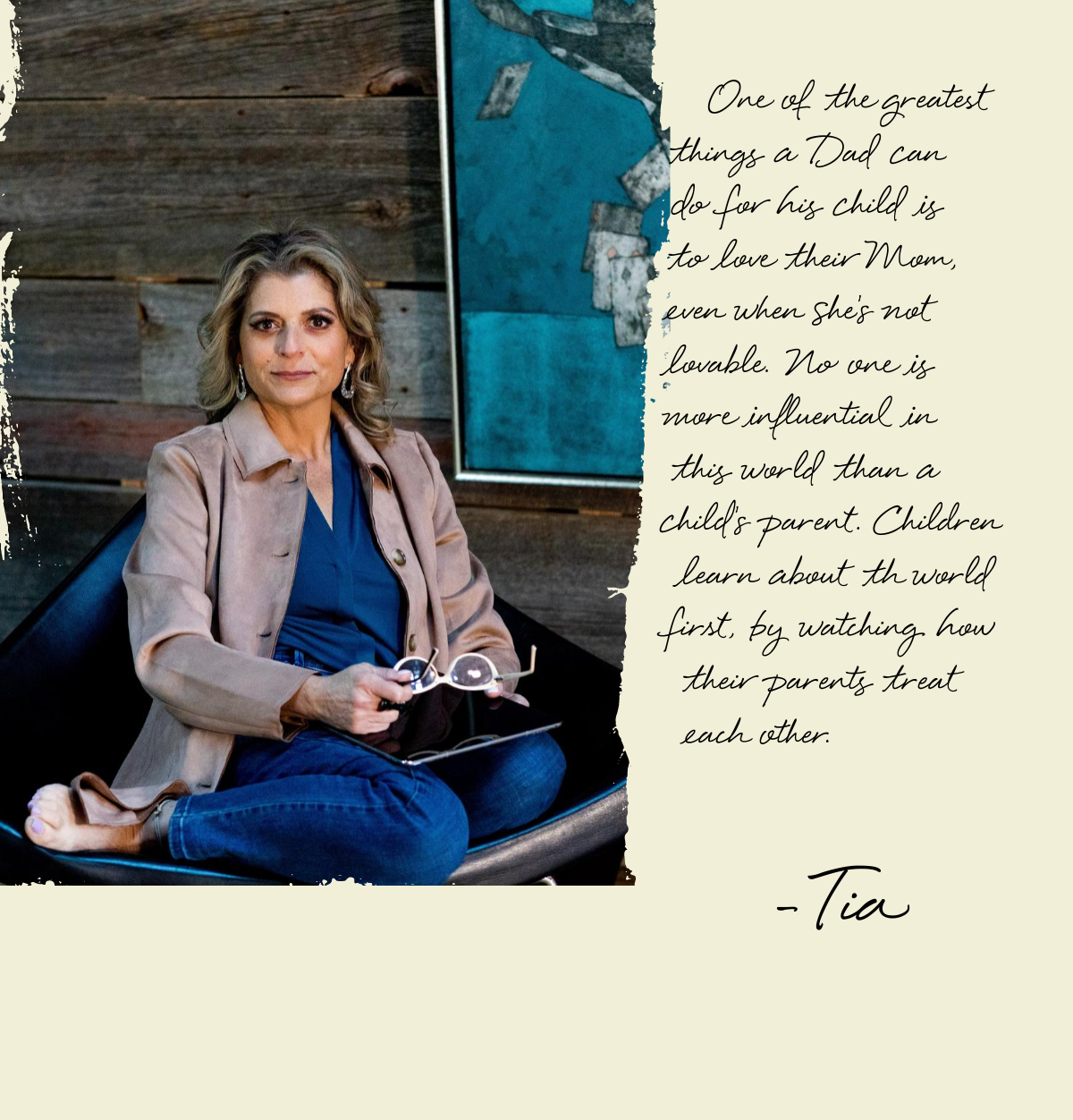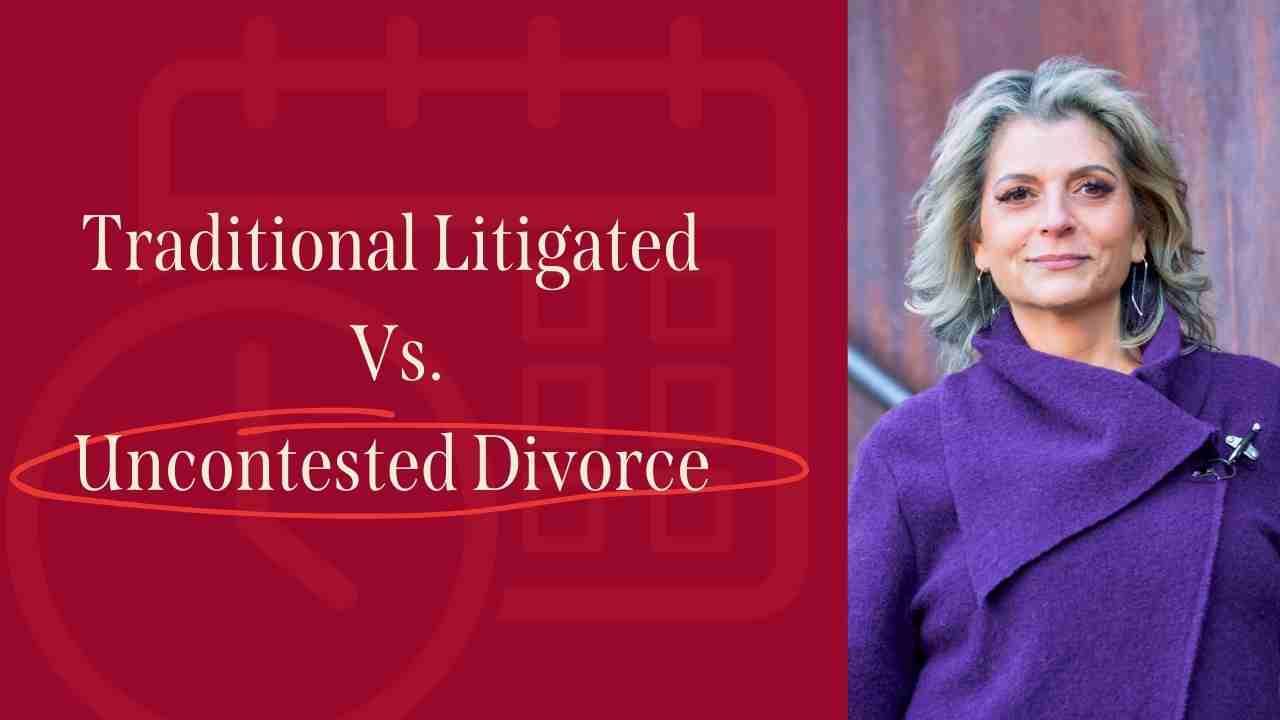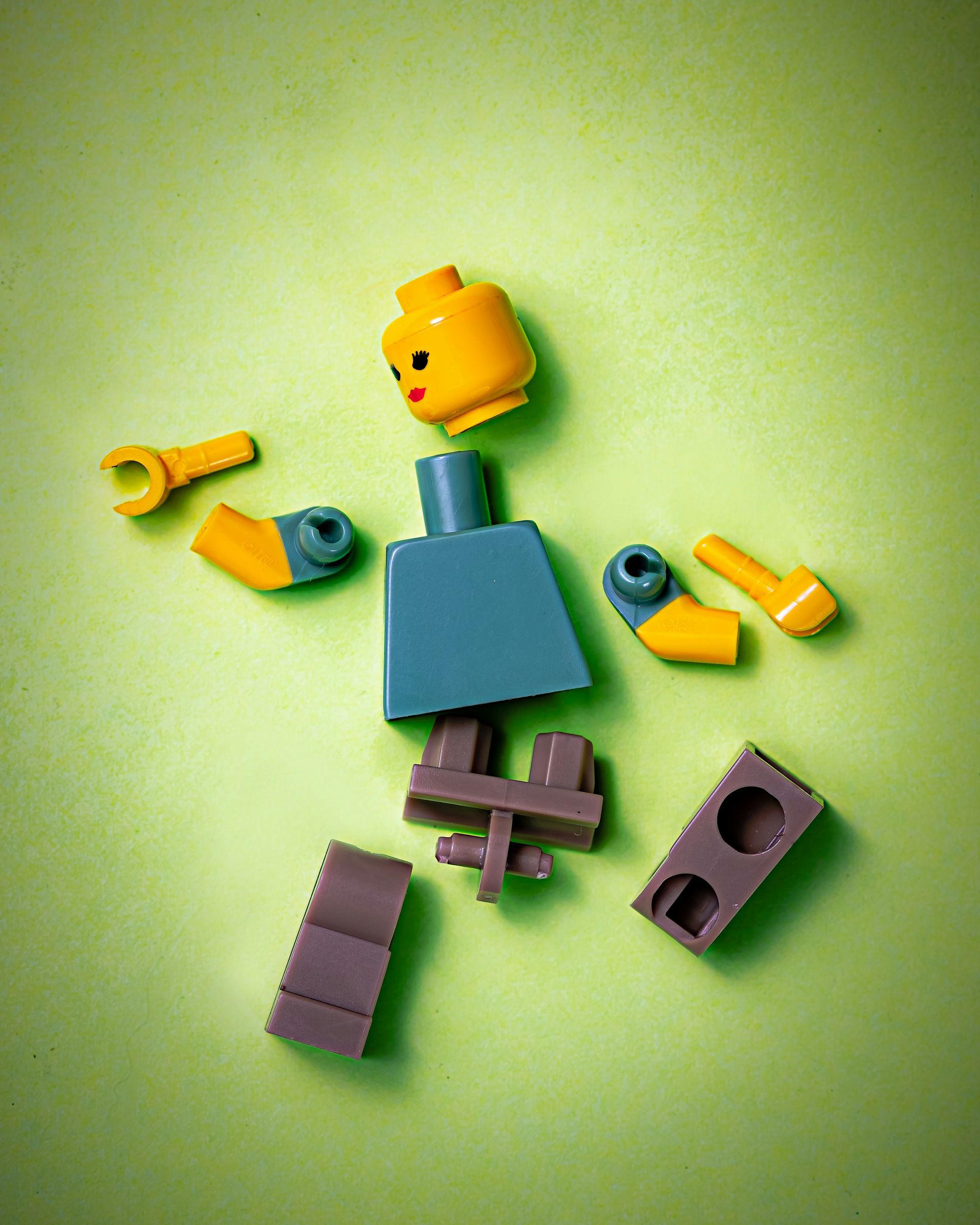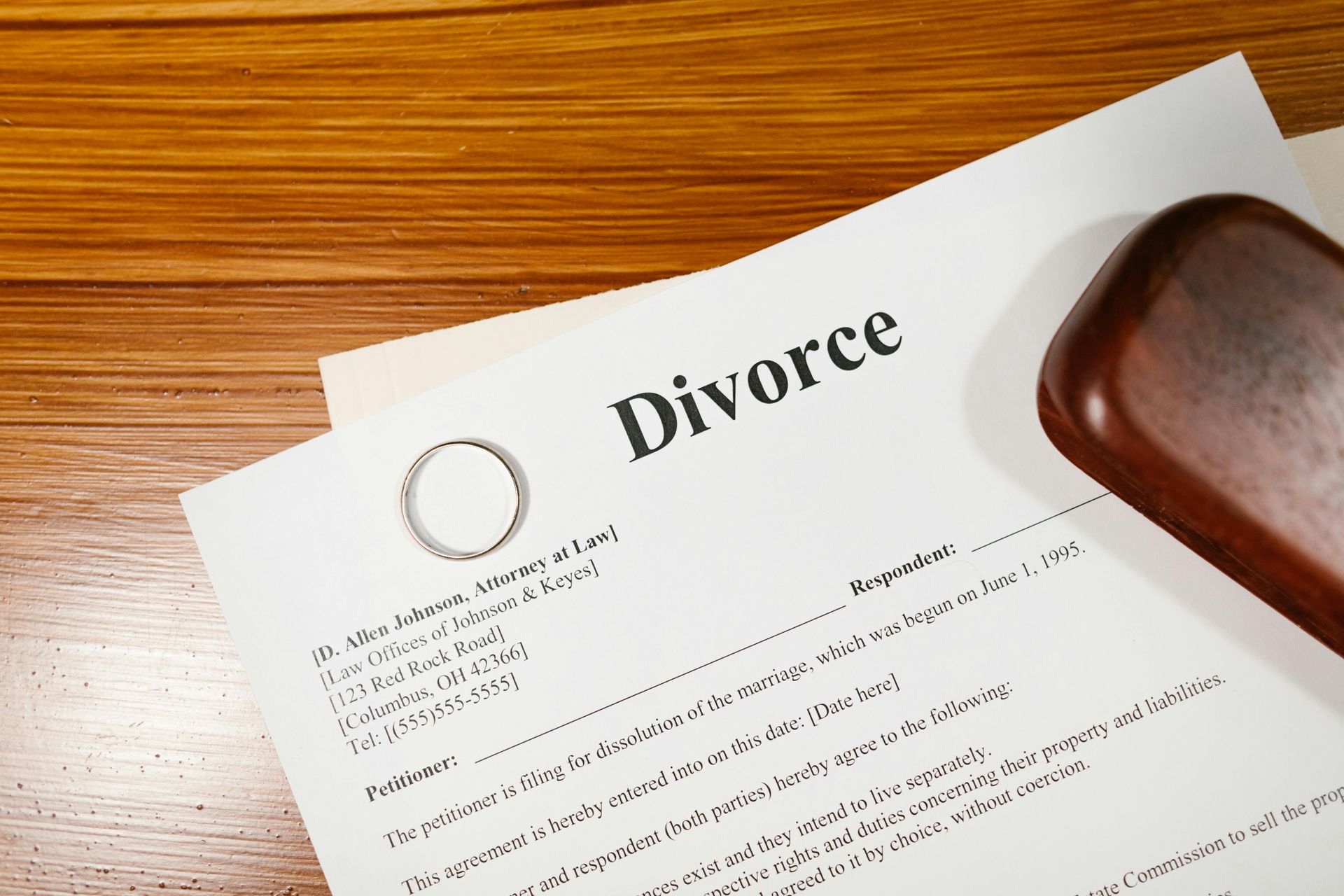The Impact of Divorce Affects Every Aspect Of Life
Divorce carries a heavy emotional burden. It's a process that disrupts the foundation of a relationship, leading to significant changes not only in the lives of the two individuals involved but also in their extended communities, jobs, families, finances, and mental health. I didn't know any other divorced people until I was getting divorced. Other than my parents, who had multiples of marriages, all ending in divorce. Did you know that if you are child of divorce, you have a much greater chance of your own child experiencing divorced? Divorce.com has run the data around the world. In 2022, 44% of Americans were experiencing their first divorce. The average age is 30 and second marriages have a 50% divorce rate.
This means that nearly half of all married people will be experiencing a divorce in their lifetime. Those getting divorced will be experiencing a very significant trauma. It is almost predictable that there will be a wave of impact affecting your children, you, and your spouse's lives. Here's what every person should know before they embark on a divorce: It is possible to mitigate, or reduce, the negative financial and emotional effects that come with the divorce process if you want peace for your children and you. Let's explore a transformative perspective on divorce, one that focuses on growth, respectful communication, and co-parenting.
Divorce is a Trauma:
When I was a family law attorney, in our consultation, I always told my clients that divorce is a death. It is a profound trauma for the parties and their children. The impact of divorce is like a tidal wave, spreading its effects throughout your life. The consequences extend far beyond the separation itself. It will affect your community, your job, your family, your finances, and your mental health. These ripples can be both positive and negative, depending on how you choose to navigate this challenging period. You can control whether the experience will profoundly define your children, their future, and the future of you and your spouse. It is possible to end a marriage without causing such deep pain and hurt that will invariably undo years of what the couple did that was good together.
This Isn't Your Kid's Divorce:
It is important to state the obvious and remember that you and your spouse are divorcing. You two entered into a contract for marriage. Nowhere in that contract/marriage license are your children's names. Your kids aren't ending their marriage. And importantly, YOU are not divorcing your children, even though your living arrangements will be different. Divorce doesn't have to be the end of the road for your relationship with your children. It doesn't have to become an adverse childhood experience for them. Instead, it can be an opportunity for you to develop an even more intentional relationship with your children, becoming an involved co-parent. I have had so many Dads become more involved and better parents than when they were during their marriage. So many parents ask, "what should I tell my kids?" And the easy answer is absolutely nothing. If you are talking to your children about your relationship, please stop. Even if you are doing it now, you can stop today. In my opinion and experience, how you behave with your co-parent during your divorce will single-handedly define their future relationship with you more than any experience they will have during your lives. Kids observe, sense, and hear EVERYTHING. They are sponges, especially during the formative years. You can't fake having a healthy co-parenting relationship with your ex, because kids sniff everything out and only let us know a fraction of what they take in. You also can't call your oldest child your "best friend" and confide about any aspect of your divorce experience, regardless of your circumstance. Here's the brass tax:
Children should not be exposed to their parent's divorce and it's not necessary. Of course, there are some honest conversations that need to happen: "Mom and I are getting a divorce..." but these are intentional and joint conversations with your children, who will forever remember the time you told them you were getting divorced.
Co-Parenting for the Long-Game:
Before you embark on any aspect of your divorce, you need to take a moment to understand the impact of divorce on your children. I want you to ask yourself: "What do I want my children to remember about this divorce?" And I promise you, they will remember it all but through their own lived experience. While the divorce may seem overwhelming for you both, directing your attention on the well-being of your children during this time will provide you both a healthy way to manage the changes that come with the divorce. Effective co-parenting is the key to a successful post-divorce relationship with your children. Your children are observing all the ways that you and your partner are behaving in your divorce. They will file it all away until it is time for them to end a relationship and then they will refer to the only example they have ever known. So, witnessing respectful communication between both parents, and creating a stable and nurturing environment is the highest priority for parents.
Challenges and High-Conflict Situations:
Of course, not all divorce situations are straightforward. Some co-parents may struggle with high-conflict dynamics, making it challenging to maintain a healthy co-parenting relationship. In such cases, it's essential to focus on minimizing the negative impact on the children and seeking external support when necessary. If your spouse is engaging in abusive or coercive behavior, get your child into therapy as soon as possible so THEY can learn how to manage a difficult parent as they mature. There are many resources available to those who struggle to have positive communication with their co-parent. Materials from high conflict specialists like Bill Eddy, LCSW can be immensely beneficial.
The Post-Divorce Aftermath:
Divorce isn't just a legal process that ends in court. It's a deeply emotional and often traumatic experience. Divorcing couples may find themselves overwhelmed by feelings of being smeared and criticized. If lawyers were involved, you can expect to remember every slight or incorrect allegation made by your spouse's attorney for a very long time. Every financial or parenting mistake is magnified and weaponized. These scars don't magically disappear after the legal proceedings end. They persist, often leading to problems in your and your children's mental health. They result in a never-ending financial burden that results in little, if any, gain. But worst of all, everyone is bitter and resentful. The years of marriage that were great are erased and the divorce is the center stage. I have seen some couples who have litigated
for their children's ENTIRE CHILDHOOD. The aftermath on the child's psyche and their relationship with their parents and the world will be forever impacted. When you are thinking about how to behave in your divorce, think about what your child will remember after the dust has settled for you. What memories will they be unable to erase simply because you and your spouse couldn't co-parent in a healthy way.
Protect Your Kids By Avoiding a Long Divorce Process
To protect your children from a lengthy and costly legal battle that will only serve to cause them to suffer, you and your spouse can have an Evolved, mediated collaborative divorce process. This way, you are protecting your children from the drawn out and expensive process that will be a large focus of your and their lives until it is resolved. It is possible to keep your divorce out of court and in your control. It's not just for Tom and Gisele, or Gwyneth and Chris. It's for anyone who wants to end a relationship with a partner who is still committed to respect, transparency, and fairness. Instead of hiring TWO experts, you hire a joint neutral expert to assist in valuing your businesses, real estate, and other property. So both spouses can evolve in the process, they both have access to referrals for mindfulness and mental health resources as well. An Evolved Divorce is a more constructive and less damaging way to divorce. You control the pace and the terms. You can determine your parenting agreement and your property division confidentially and with the assistance of a mediator. The Mediator helps both parties communicate their needs and concerns, allowing for a resolution that is controlled by the Parties and not the court system. It's the closest thing to a win/win that you can get in divorce.
Conclusion:
There are two paths in divorce. One that immediately creates division and defensiveness and costs tens of thousands of dollars and lasts months upon months and sometimes, years. Or one where the parties choose to proceed with respect, transparency, and a desire for fairness. The path of litigation should be a last resort if you have children. And, if you are unable to remember how to act with your kids, simply say nothing and put the attention on them, as it should be. Divorce can be an opportunity for growth, transformation, and the development of a healthy co-parenting relationship. By embracing respectful communication and focusing on the well-being of your children, you and your spouse will navigate your divorce more intentionally and with less drama. By choosing an Evolved divorce, you can show your children how it is possible to turn a challenging life event into a positive path forward, without destroying their childhood.











